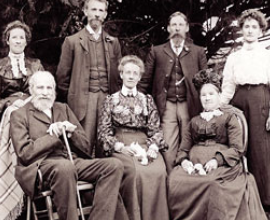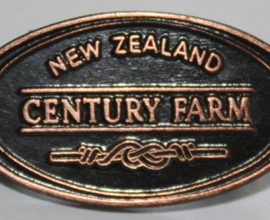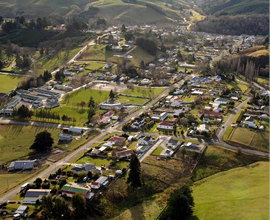Frequently-asked questions
Q. Will you take into account the time the family leased the land before purchasing?
Yes, as long as there is some documentation to prove this (ideally copy of the lease), we will accept the family started farming the land from the effective lease date.
Q. Where can I find a copy of my title/s?
Copies of titles are available from the Land Institute of New Zealand. You may either write, telephone, go to your local office or go online to www.linz.govt.nz and click on Titles and Records, to order the required documents. You might like to also check out the section 'Researchers and Historians' for further information. Title copies can be ordered online.
We have been advised by LINZ that they do not have adequate resources to locate some titles. You may need the services of a lawyer or search agent to help you.
Some examples of search agents:
- Bob Matthews - Pastfinders Avitus, 03 473 9695 rgmatthews@orcon.net.nz (Otago and Southland only).
- Evan Greensides IM Consultant - EG Consulting & NZ Archives Council Member. www.egconsulting.co.nz
Another alternative is Archives NZ. The staff are normally very helpful and they have all original titles bound in large books. You just need the correct family name or initials and area and they are able to track the family's title, research wills, and even letters etc.
Some very old farms predate the whole title process as we now know it. Other families purchased and farmed for years before a title was issued, or all formal documents have been lost in catastrophic events such as the Napier earthquake. In these cases the Committee will at their discretion consider other forms of verification which show the date on it.
The Papers Past website through the National Library also is worth searching - https://paperspast.natlib.govt.nz/ If titles are unobtainable, the Committee will accept a newspaper article verifying the date of purchase. The website has a great search function and is easy to use.
Q. What kind of photographs do I enclose, and how many?
Most Century Farmers enclose copies of as many historic photographs relating to the farm/family as they can find. Conversely others have lost all in a fire or flood, and their inability to enclose such material in no way diminishes their application. There is no upper limit as to how many photographs we will accept, and they can be sent in digital form (on a memory stick or CD). Please realise that photos of your farm and family "taken yesterday" will complete the picture. They too will be hugely interesting in 50 years!
We have received a lot of wedding photographs, school photographs and families posing beside newly completed homesteads, as well as pictures of prize livestock, horse teams, new tractors etc. Don't forget to send photographs of the current generation too. People have also submitted diverse materials such as a receipt for turnip seed, an agreement between a crofter and Scottish landowner, copies of old family letters and certificates for prize-winning fleeces.
While we are making the request for these materials, it is much more about what you as a family would like to see preserved for future generations and what you would like those researching New Zealand's agricultural history to know.
Since the New Zealand Century Farm & Station Awards collection archive is to remain open at the Turnbull Library, you are invited to contribute further material as the years go by. To quote Dr.David Colquhoun, Curator of Manuscripts and Archives, "We know there is a lot out there on farms, by way of diaries, station books and photographs. We also hope that these Centenary farming families would want to deposit additional historical material over time."
Q. Can I copy the application form?
Please do! When we first launched these awards we struggled to make eligible families aware of them and were greatly helped by individuals copying the application forms and handing them to other interested parties.
Q. What is the application fee used for?
As a non-profit organization we try to cover as many of our expenses as possible. The substantial bronze plaques presented to awardees currently cost almost $300 each. The remaining money helps cover office expenses etc.
Q. What about that logo?
In looking for a suitable logo we chose a simple fencer's figure eight knot. We believe that anyone who ever farmed, whatever the agricultural commodity produced, probably built a fence. And we thought it also had a good connection to the famous Kiwi number eight wire ingenuity!
Q. Why Lawrence?
Historians consider that gold made modern New Zealand. Lawrence is the town which sprang from the nation's first major gold discovery in 1861 nearby in Gabriel's Gully by Gabriel Read .
Over 11,000 people rushed to the area from all over the world, and it is thought that several thousand more transients, went unrecorded. The massive influx provided a huge impetus to agriculture. People had to eat of course! As well as providing a market for produce, immigrants brought their own varied ideas and skills to farming, after their golden dreams had faded.
Lawrence remains steeped in history and boasts an impressive collection of historical buildings, one of which is soon to be the national home of the NZCFSA.
Q. I want to apply, but might not get everything together by 30 November deadline.
To process your application, we need the completed application form, evidence of land purchase and payment. We will advise what is required for the family story booklet once your application has been processed. Any remaining information to be added to the Alexander Turnbull library archive can arrive later. Or there's always next year!
We encourage families to get their applications well in advance of the 30th November deadline. The programme has a “first in, first served” policy for each awards event and will use discretion on whether they carry applications over into a following year depending on numbers received.
The NZCFSA Committee wishes to thank you for your interest, and for helping to preserve our nation's agricultural heritage.



